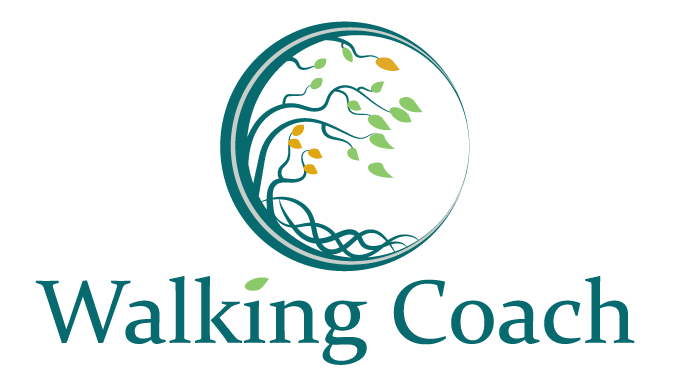Leadership: What’s nature got to do with It?
Since 2008, Walking Coach has worked with, and through the natural world, to provide transformative, learning and development experiences for leaders from across the world of business.
Understandably, you might ask, what has nature got to do with organisational life or leadership? And why does it matter?
21st century leadership
Nowadays the concept of leadership is taking on new meaning.
In the olden days (i.e. when I was last a corporate employee), leadership was centred on an individual, the top dog, with all the power and control bestowed upon them, assuming loyalty and follower-ship by virtue of his / her (mostly his) position.
Today, and in the future, being a leader has little to do with entitlement or position.
It’s about making a difference in your own life and in the world around you.
It's about understanding the interdependent nature of all of life, and that by changing one thing, we change everything.
It’s about influencing and impacting others so they can flourish, in your organisation, community or the planet itself.
It’s about living and acting by example and by promoting key principles such as justice, sustainability and democracy.
In an increasingly complex and fast changing world, where global issues affect everyone, it is a continuous way of “being”, which most of all, is about being “in relationship”.
An ecopyschology and systems perspective
As inhabitants of this planet, we humans cannot escape from the fact that we are part of an entirely interdependent Earth system. Since we come from nature and depend on the rest of nature for our very sustenance, we require a healthy Earth for our own future health and survival.
Our ancient ancestors not only understood this. Their entire lives were intertwined with nature's rhythms and cycles.
But over the centuries, our highly evolved human intellect, together with our capacity for creation, has led inhabitants of the industrialised world, to develop lifestyles, systems and cultures that, as we are now discovering, have an unhealthy, exploitative and destructive impact on the planet, other people – and ourselves.
Ecopsychologists argue that, in creating this growing gulf between ourselves and the rest of nature, we humans, consciously and unconsciously, cause untold harm to the very system that supports our existence (and that of all other species), even though, intellectually, we might claim to know better.
We are getting sicker
In a downward spiral, as our planet gets sicker, we also get sicker – not only physically, but psychologically and spiritually too. Separated from our natural 'family' or 'home' we are driven to a deep, dis-quieting sense of psychological alienation, grief and despair that surfaces, both overtly and covertly, in an endless variety of forms, such as addiction, self-sabotage, depression, chronic fatigue, procrastination, laziness and rage.
At first, this might seem like a lot to digest, never mind take on board. Yet, despite whatever the ecologists and psychologists have to say, deep, deep down most of us would agree, that the way our civilisation functions in these times is not okay.
This is an era where mass genocide, sweat shops, slave trading, famine, over-consumption, huge imbalances of wealth and environmental attack are overwhelmingly, worrying signs of our time.
Inevitably, that leads a growing number of us to ask some very difficult and soul-searching questions of ourselves - and of the communities, organisations and cultures that we are part of.
And of course it isn't straightforward.
Because, in a holistic sense, the Self extends way beyond our own, individual notion of mind/body/spirit.
Our family and social relationships, and the environments in which we live, work, play, and love also define who we are, as well as determining our overall health and well-being.
The bottom line is, who we are and how we lead our lives has a ripple-out effect, carrying through our relationships and other systems that we touch, into the wider environment.
This, in turn, ripples back, further shaping us - and our lives.
All of us have some part to play in creating the world we live in today, for good or for ill.
Nature as the doorway to change
So what is there to do? And where can we start?
If the ability to build relationships where both people and their environment can flourish is the core to leadership of the future, then nature provides the perfect beginning place for any one of us who seeks to transform our lives and impact others, in an entirely new way.
When we venture out into natural landscapes for any length of time, most of us experience a change coming over us.
In the peace and beauty of a natural environment, all our senses are awakened while the mind chatter of the ego quietens down.
Away from urban noise, technology and work stress, there emerges a feeling of renewed personal ease; of emotional healing; of opening up; of clear headed-ness; and of coming home, that many people experience yet can’t necessarily explain.
Our brains enter a new state which is more inspired, creative and receptive than is normally possible in an everyday office environment.
Nature draws us into a gradual process of expansion, that in turn enables us to connect more holistically to ourselves, to others and to our planet.
This is where the healing begins, of both the soul and the whole.
Tragically, studies show that in our nature-separated society, 95% of our time and 99.9% of our thinking is disconnected from nature.
But as leaders, we can begin to reverse that separation once again.
Starting with ourselves.
